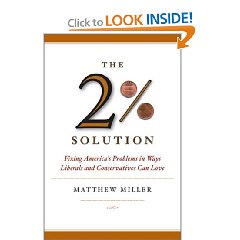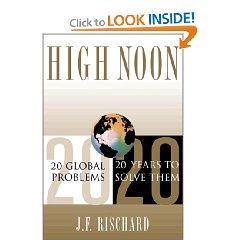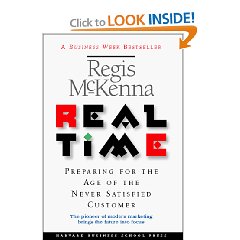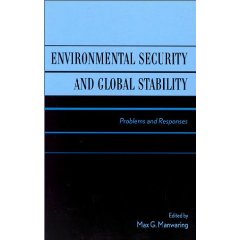Edit of 21 Dec 07 to add links.
This book is politically and economically *explosive*. It joins The Radical Center: The Future of American Politics (Halstead & Lind) and The Cultural Creatives: How 50 Million People Are Changing the World (Ray & Anderson) as one of my “top three” in domestic US political economics, and it *also* joins The Soul of Capitalism: Opening Paths to a Moral Economy (William Greider) and Rogue Nation: American Unilateralism and the Failure of Good Intentions (Clyde Prestowitz) is my “top three” for international political economics.
This is a cross-over, transformative book that should be meaningful to everyone in the world, but especially to those Americans who wish to break out of the vicious downward spiral caused by partisan politics and voodoo economics–by elected politicians corrupted by special interests and consistently selecting short-term fraudulent “solutions” at the expense of long-term *sustainable” solutions.
By “2% solution” the author means 2 cents of every dollar in the national budget, or roughly what we have already wasted or committed to waste on the misbegotten Iraq invasion and occupation. The author crafts a viable proposition for thinking really big and coming to grips, in time to avert the looming disaster of the baby boomer pensions and the collapse of health care and education, with the four biggest issues threatening the national security and prosperity of the United States of America: universal health care; equal education for all, a living wage for all, and sustainable reliable pensions for all.
He sums it up in a gripping fashion: if we don't fund smart well-educated kids across the entire country, then we will not have the productivity we need to expand our pension funds and care for the boomers when they hit retirement. Smart kids now, safe retirement for today's adults. Any questions?
He is candidly (but politely) blunt when he states, and then documents, that both the Republican and Democratic party leaders (less Howard Dean) are lying to us about the answers that are possible (Prologue, page xiii). His book is an earnest–and in my judgement, hugely successful–attempt to create what the author calls an “ideologically androgynous” agenda for achieving social and economic justice in America with a commitment of just two cents on the tax-revenue dollar.
On the issue of teaching, he documents the “teacher gap” as one of the primary reasons for varying levels of performance–a gap that is more important than genetics or environment, and that is also resolvable by sound educational policy and funding. He brutally undresses both the Bush Administration, which is leaving every child behind, and the Democrats, who are “more symbol than cure.” Republican hypocrisy and Democratic timidity receive an equal thrashing.
On living wages, he documents the 25 million that are not covered; on pensions he documents the coming collapse of Social Security and other “off budget” and unprotected funds.
He provides four reasons why we have a dysfunctional debate (and one can surmise: why we need to change the Presidential election process in order to achieve truly open and substantive debates): 1) paralysis from political party parity; 2) old mind-sets and habits shared by *both* Republican and Democratic leaders (less Governor Dean); 3) the failure of the national press to be serious and critical and to contribute to the debates; and 4) the tyranny of charades funded by political contributions.
The book includes an excellent and understandable review of both economic and social justice theory. Of special interest is the author's discussion of the Rawls Rule for social justice, which is to imagine everyone in an “original position” behind a veil of ignorance where no one knows what their luck will be in the future–the design of the social safety net should provide for the amelioration of any injustice that might befall anyone, and a social promotion system that prevents wealth concentrations that are not beneficial to the larger society–to wit, we must “set some limits on the power of luck to deform human lives.”
The author concludes the book by suggesting that the public is ready for a revolution in U.S. political economic affairs, and in so doing points out how ill-served the U.S. public is by surveys that confuse myopia with honesty–surveys that ask generic questions without revealing the scope of the problem (40 million affected, etc.) with the result that the public is not informed of the depth of the problem–or, as the author suggests–they would *want to do something about it.”
This is a sensible, heartening book. It is a book that gives hope for the future and that displays a proper respect for the good intentions and ability to think of the average citizen. It is a book that, if adopted by any Presidential candidate–or by all of them–could radically alter the public debates that lie before the public in the period leading up to the 2004 election. Every American should read this book and the four books cited above. If Thomas Jefferson was correct when he said, “A Nation's best defense is an educated citizenry,” then Matthew Miller just became the first tutor to the new Nation.
New Comment: Between a Tobin tax on every Federal Reserve transaction, an end of income taxes on individuals, and this author's idea, I am quite certain that we can find and apply a trillion a year against global and domestic high-level threats from poverty to transnational crime, while winding down the military, secret intelligence, prison, and hospital complexes. This is one of the books I would recommend the next President read sooner than later.
See also, with reviews:
One from Many: VISA and the Rise of Chaordic Organization
The Tao of Democracy: Using Co-Intelligence to Create a World That Works for All
Breaking the Real Axis of Evil: How to Oust the World's Last Dictators by 2025
The Fortune at the Bottom of the Pyramid: Eradicating Poverty Through Profits (Wharton School Publishing Paperbacks)
The Wealth of Networks: How Social Production Transforms Markets and Freedom
Revolutionary Wealth: How it will be created and how it will change our lives










